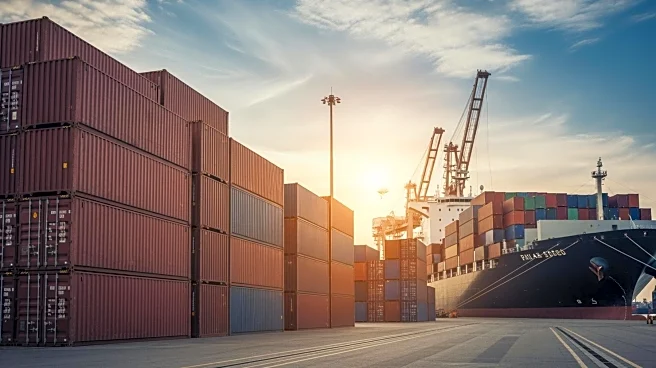What's Happening?
Matson, a U.S. ocean shipping company, has paid $6.4 million in port fees to China since the fees were implemented on October 14. This development follows a temporary pause in tit-for-tat levies agreed
upon by President Trump and President Xi Jinping, effective November 10. The fees were part of a broader trade dispute, with the U.S. initially imposing fees on China-linked ships to support domestic shipbuilding. In response, China levied fees on U.S.-linked ships. Matson, which operates U.S.-built and -flagged vessels, was among the first to pay these fees. The company anticipates further guidance on potential refunds from the U.S. Trade Representative and China's Ministry of Transport.
Why It's Important?
The imposition of port fees is a significant aspect of the ongoing trade tensions between the U.S. and China, impacting global shipping and trade flows. For Matson, these fees represent a substantial financial burden, with potential costs reaching $80 million annually if not paused. The temporary halt in levies provides a reprieve for shipping companies and may stabilize trade relations. However, the situation highlights the vulnerability of global supply chains to geopolitical disputes and the need for strategic planning to mitigate such risks. The outcome of these negotiations could influence future trade policies and economic relations between the two countries.
What's Next?
Matson and other shipping companies are awaiting detailed instructions on the implementation of the fee pause and potential refund mechanisms. The resolution of this issue could set a precedent for handling similar trade disputes in the future. Stakeholders in the shipping industry will be closely monitoring developments to assess the long-term impact on trade operations and costs.











